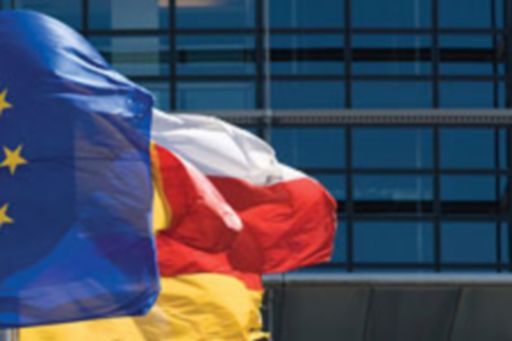Euro Tax Flash from KPMG's EU Tax Centre
Euro Tax Flash from KPMG's EU Tax Centre
On December 21, 2016, the Court of Justice of the European Union (CJEU) rendered its decision in the joined cases Commission and World Duty Free Group, formerly Autogrill España (C-20/15 P), and Commission and Banco Santander and Santusa (C-21/15 P).
Highlights

>> Go back to Euro Tax Flash homepage
CJEU decision in joined State aid cases Autogrill and Banco Santander
State aid – Selectivity – Tax amortization of financial goodwill – Foreign shareholding acquisitions
On December 21, 2016, the Court of Justice of the European Union (CJEU) rendered its decision in the joined cases Commission and World Duty Free Group, formerly Autogrill España (C-20/15 P), and Commission and Banco Santander and Santusa (C-21/15 P). These cases concern the Spanish provisions allowing companies which are tax resident in Spain to amortize the goodwill resulting from the acquisition of certain shareholdings in foreign companies are in breach of the EU State aid rules. The CJEU concluded, contrary to the EU General Court’s decision, that this measure could be selective even if the tax benefit was not limited to a particular category of undertakings. However, the CJEU referred the case back to the General Court for further consideration of the selectivity criterion as well as certain pleas that the General Court had incorrectly not dealt with.
Background
The measure at issue allowed undertakings taxable in Spain to amortize for tax purposes the financial goodwill resulting from the acquisition of a shareholding in a “foreign company” equal to at least 5% of that company’s capital, when such shareholding is retained for at least one year. The tax advantage resulting from this measure is however not granted to undertakings acquiring shareholdings in a company established in Spain.
In 2009 and 2011, the EU Commission issued two negative decisions (2011/5/EC and 2011/282/EU) in which it concluded that this difference in treatment constitutes illegal State aid and ordered its recovery. Following appeals brought by Autogrill España (now World Duty Free Group) (T-219/10) and Banco Santander and Santusa (T-399/11), the General Court annulled the EU Commission’s decisions. In the two contested judgments, the Court concluded that the EU Commission failed to establish the selective nature of the regime since it was not able to identify ex ante a category of undertakings favoured by the derogating measure. According to the General Court, the scheme – while targeting specific economic transactions - was a priori available to all undertakings and therefore not selective. In 2015, the EU Commission filed an appeal before the CJEU, raising the question whether the contested aid is selective.
The CJEU decision
The CJEU first addressed the question whether the measure at issue conferred a selective advantage on “certain undertakings or the production of certain goods”, as required for there to be State aid under the applicable EU law. Reviewing its past case law, the CJEU concluded (as Advocate General Wathelet had done in his Opinion (see ETF 296)) that the General Court had misapplied this selectivity test, and that it was sufficient for the Commission to show that the measure is a derogation from the ordinary tax system in Spain, which results, “through its actual effects”, in differences in treatment of businesses that are in comparable situations in light of the objective of that system. In particular, the Court stated that in order to establish selectivity it was not necessary to identity “certain specific features ….common to the undertakings that are the recipients of the tax advantage, by which they can be distinguished from those undertakings that are excluded from the advantage”. In other words: it is only necessary to show that the measure places the recipients in a position that is more favorable than that of other undertakings in a comparable situation.
Although the CJEU took the view that it was possible for selectivity to be constituted by the fact that resident undertakings acquiring shareholdings in Spanish companies were not able to amortize the resulting goodwill, but not if they acquired shareholdings in non-Spanish companies, the question remained whether these two situations were comparable in light of the objective pursued by the general Spanish system of taxation of companies. The CJEU referred the case back to the General Court to decide this question as well as three of the four submissions that the General Court had wrongly not examined.
The CJEU also agreed with the Commission’s claim that the General Court had incorrectly applied the case law on aid for exports and introduced an artificial distinction between aid for exports of goods and aid for exports of capital. The Court held in this regard that a measure such as that at issue, could be regarded as selective if it benefits undertakings carrying out cross-border (investment) transactions but not those undertakings in a comparable situation which carry out their transactions within the national territory.
EU Tax Centre comment
This decision represents a significant development of the law on State aid. While the clarification that it gives in respect of the interpretation of the selectivity criterion is, as such, to be welcomed, the interpretation itself implies that the scope of these rules may be wider than many had previously understood based on the 2014 decision of the General Court.
Should you have any questions, please do not hesitate to contact KPMG’s EU Tax Centre, or, as appropriate, your local KPMG tax advisor.
Robert van der Jagt
Chairman, KPMG’s EU Tax Centre and
Partner, Meijburg & Co
Barry Larking
Director EU Tax Services, KPMG’s EU Tax Centre and
Director, Meijburg & Co
